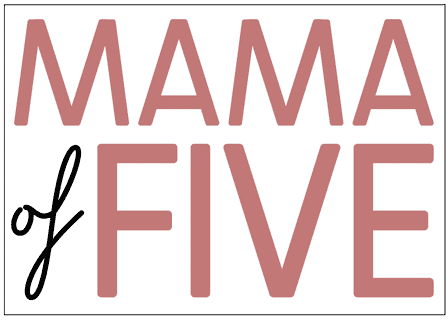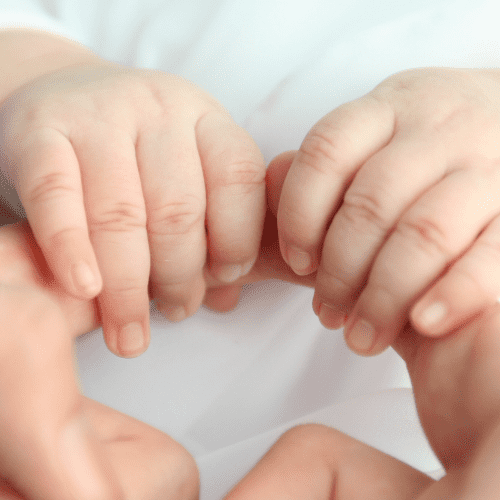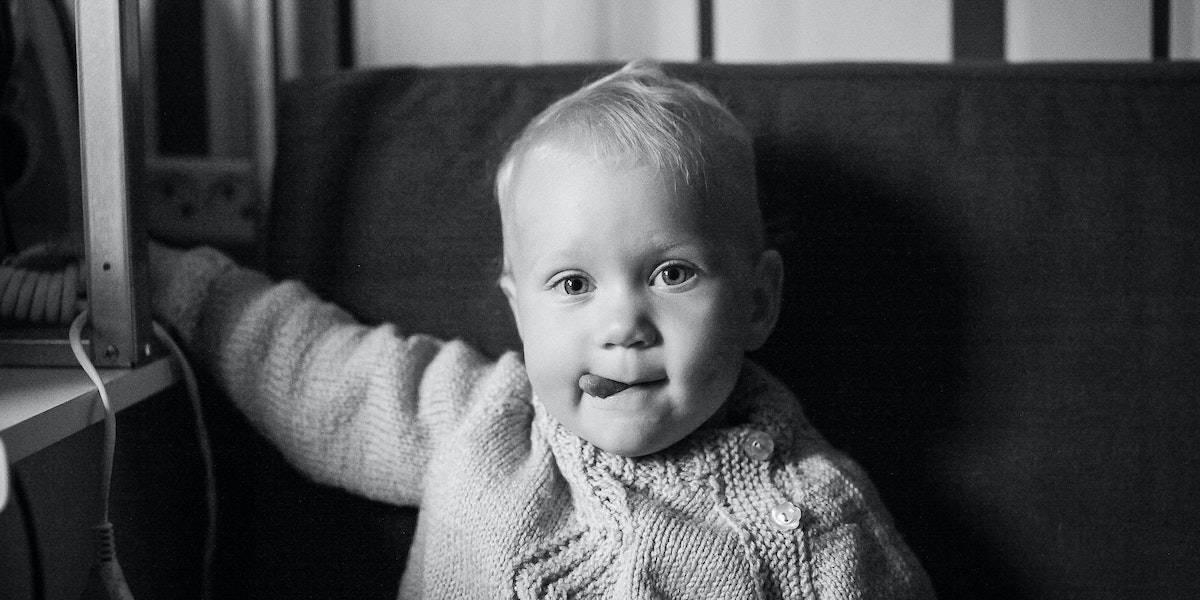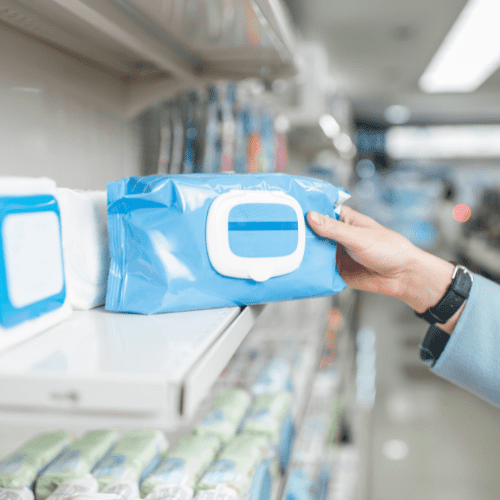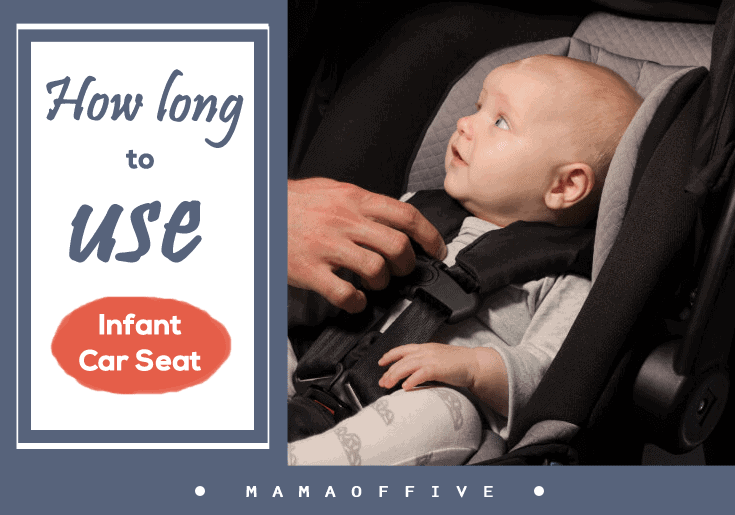How often should I be burping my newborn and how can I get them to burp?
These are questions that can often trouble a first-time mom. Whilst it is one of the unglamorous sides of parenthood, hearing your newborn burp after feeding will be music to your ears.
Why? Because a burped baby is a happy baby. Burping needs to occur because newborns take in a lot of air both from feeding and crying.
They have immature digestive tracts and need help releasing the buildup of air.
As an Amazon Associate I earn from qualifying purchases. The links below may be affiliate links. Please read my disclosure policy for more information.
Whether you are breastfeeding or formula feeding, your baby will most likely have gulped in the air whilst they are feeding which has led to a build-up of gas in their tummies.
Bottle-fed babies tend to suffer more from a gas build-up than breastfed babies.
Most babies grow out of the need to be burped by the time they are 4 – 6 months old.
Signs your baby needs to burp
As the weeks go by you will become attuned to the signs your baby is suffering from a build-up of gas.
But in the early days it can be a nightmare to try to figure out why your baby is crying, so here is a short list of signs to look out for that indicate the problem is gas.
- Stops mid feed – If your baby pulls away from the breast or bottle before they have finished their usual amount of milk it could be because they are full of gas. The same applies if you are offering the other breast and they are hesitant to latch. Do not take this as an indication that they are finished if you know they are used to drinking more. Try burping your baby often throughout their feed, every 5 or so minutes is recommended.
- He/ She is squirming around – Newborns will make quite obvious signs that they are in pain from gas build up. Along with constant crying you should look out for; squirming around on the breast, knees being brought up to their chest and fists being clenched. If you notice any of these signs you need to spend some time trying to burp your baby.
- Wakes from sleep – If your baby is waking up in between feeds it could be because they need to be burped. This build up of gas can cause discomfort if a baby is fed and then put down to sleep for a long period on their back. So rather than assume they are waking for more food try to burp them first. As a rule of thumb try to keep your little one in an upright position for 10 minutes after each feed before putting them on their back to sleep.
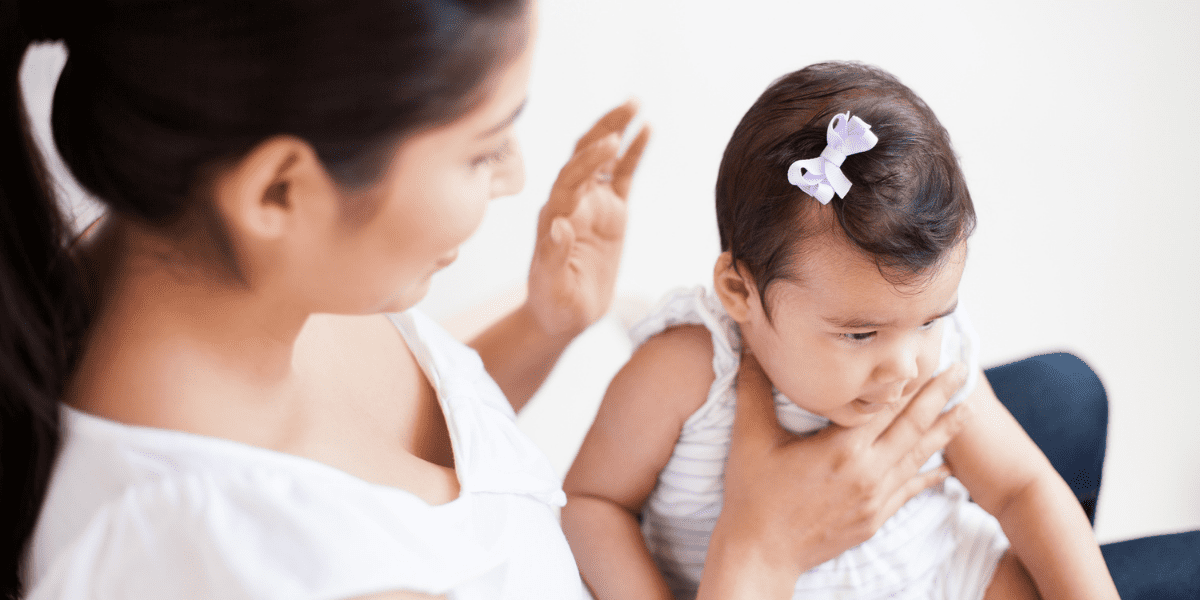
Is it okay to put a baby to sleep without burping?
Not all babies need to be burped thoroughly after feeding. Some, particularly those that are breastfed won’t take in much air. So if your baby falls asleep before they are burped try not to worry.
In most cases, if they have gas it will most likely come out the other end.
In fact, it is common for babies to fall asleep mid-feed.
Nursing isn’t just about filling up tiny tummies; the suckling notion is a great form of comfort for babies, it is often where they are most relaxed and therefore they tend to doze off.
If you are ‘dream feeding’ ( feeding them in the middle of the night without waking them up) you can gently rest them against your body in an upright position, for 15 minutes after they have finished.
If they have a build-up of gas it will most likely expel itself that way.
To yield the best results you want to try to burp your baby straight after a feed. Try these positions:
Sitting up – Hold your baby’s sleepy head upright, resting in the space between your thumb and forefinger, and gently pat their back. Start just above their bottom and pat upwards between their shoulder blades.
Over the shoulder – This is often the easiest position to burp your baby if the aim is to keep them asleep. Lay your newborn slightly over your shoulder. Resting their chin on your shoulder and cupping their bottom with your hand, gently pat their back or rub in a clockwise motion. For an added extra you could walk around and gently sway as you do it, to ensure they stay asleep.
Across your arm – This position works better for smaller babies. Rest your forearm against your body and lay your baby face down across your arm with their head resting in the palm of your hand. Gently pat or rub their back.
Across your lap – Gently lie your baby across your lap face down. To protect your baby’s head and neck you should support your baby’s chin in the palm of your hand. Be careful not to add pressure to their throat. Then, using your free hand, gently rub their back in a circular motion or gently pat their back from bottom to top. Be aware that, in this position, it is common for babies to spit up some milk.
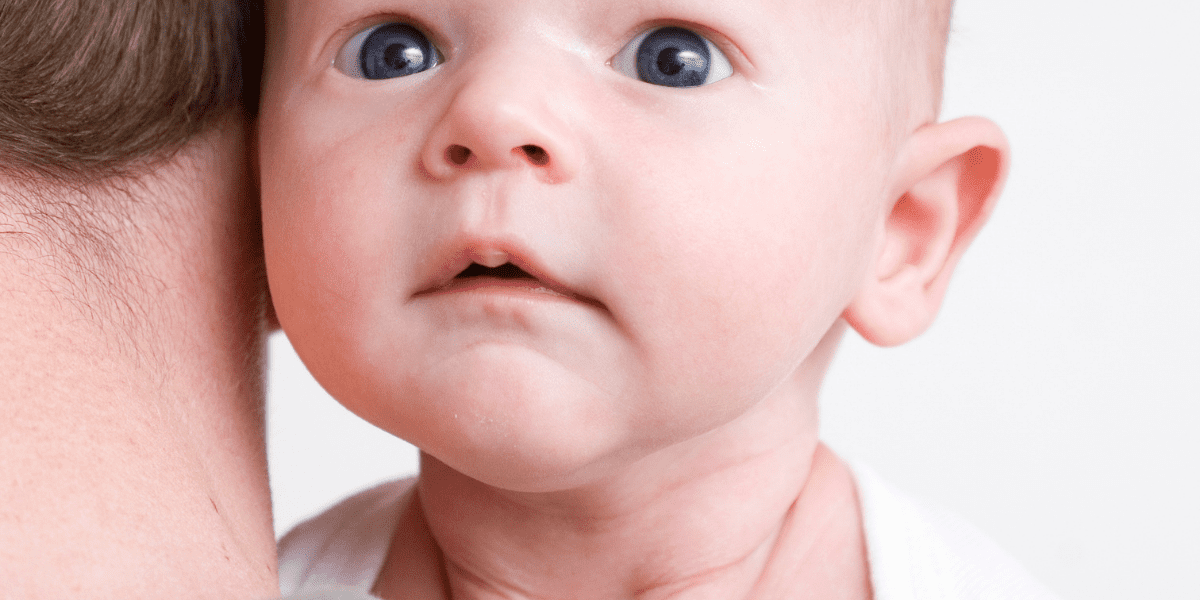
How long should you burp a baby for?
For most babies, burping should only take a matter of minutes. In fact, some babies often release gas as they are being moved from the feeding to the burping position.
It may only take around 5 minutes of gently patting or rubbing to burp your baby.
But if you notice that your baby is suffering from quite a lot of discomfort, is often sick after feeds, or cries continuously for more than an hour at a time it could be a sign your baby is suffering from reflux.
Reflux is where a baby brings up milk straight after feeds or hiccups often after feeding.
It happens because the muscles between your baby’s esophagus and stomach have not fully developed yet.
Although it is a condition all babies grow out of, it can cause quite a bit of discomfort and in these cases, you should speak to your doctor about the best way to treat it.
They will often advise that you feed your baby in an upright position and keep them this way for 15 – 30 minutes after nursing.
You may also be advised to feed your baby in small but frequent intervals and then burp them just as frequently.
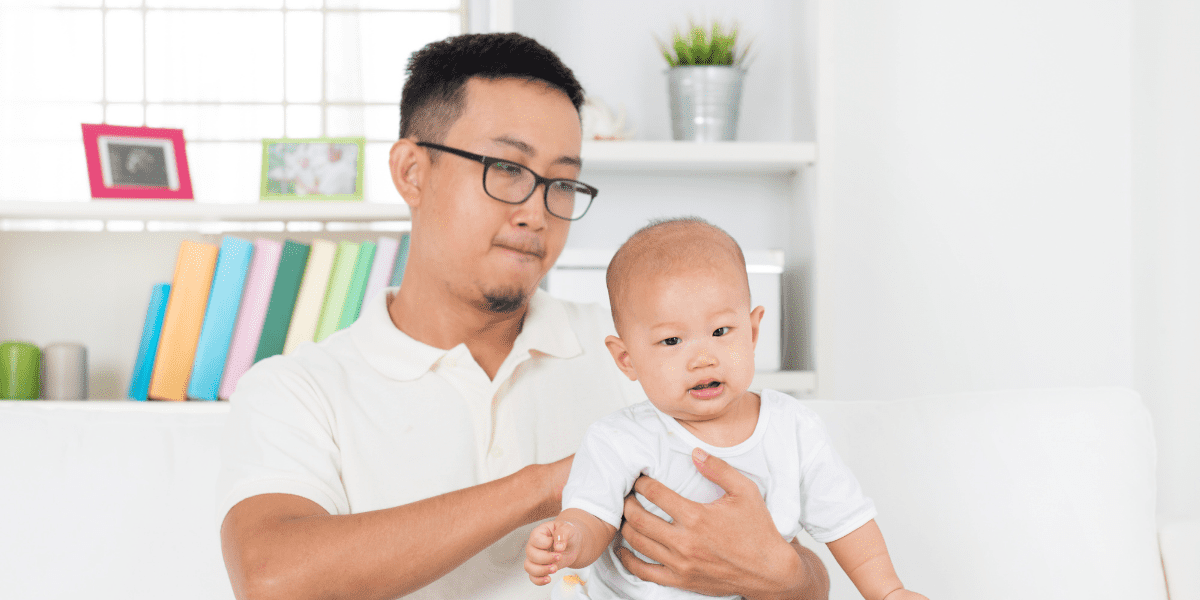
What if my baby won’t burp?
If you have exhausted all of the burping positions and your baby didn’t burp but still seems to be in some form of discomfort, there is another way you can try to relieve their trapped wind.
Lie your baby on their back and rub their tummy in a clockwise motion. After a minute or two of gently rubbing, you can bring their legs into the air and move them back and forth imitating them riding a bicycle.
As a final measure bring their knees up to their chest then straighten them out, repeat this motion a handful of times.
This combination of movements will help to encourage their digestive tract to start moving and will aid the release of built-up gas.
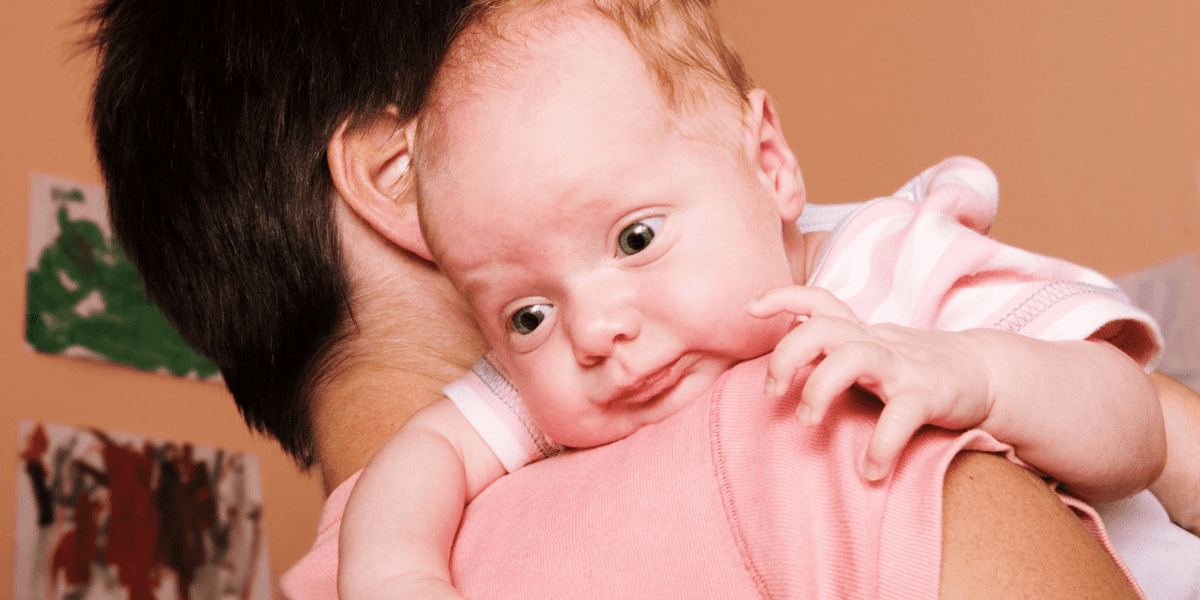
Burping and hiccups
There is nothing more frustrating than finally burping your baby and then just as they are getting off to sleep they develop hiccups. It will be natural to wonder if there was something you did in the burping process that caused this onset of hiccups.
But try not to worry.
Hiccups are completely normal in babies and they tend to grow out of them by the time they reach 3 months old. They are also not always directly caused by an air build-up.
Hiccups can occur because the weight of your baby’s now full tummy is pushing on their diaphragm. Or it could be that they simply drank the milk too fast.
Hiccups can go away as quickly as they appeared. Try to keep your baby relaxed and although it seems counterproductive, try to feed them a little bit extra.
Just like with adults, who need a glass of water to stop hiccups, a couple of mouthfuls of milk will also do the trick.
It is necessary for babies to burp during and after every feed to help reduce a build-up of gas in their tummies that will cause discomfort.
Whilst some babies will naturally burp as they are being moved from one position to another, most babies will need some help.
Putting them in certain positions makes burping more effective whilst keeping your baby relaxed. You can even successfully burp your baby whilst they are asleep.
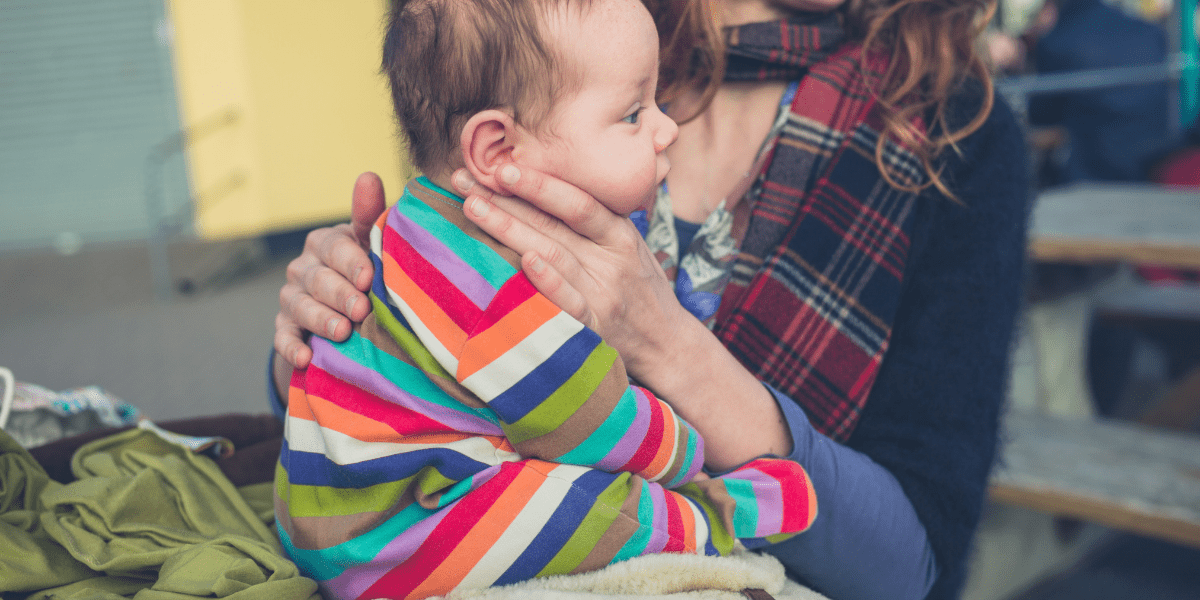
Burping should only take a couple of minutes and if you have tried all of the positions and the bicycling method to no avail, then move on and try again a little later on.
At the end of the day, you know what is best for your baby and will become more attuned to their wants and needs. Try positions that are comfortable for you but most of all keep your baby relaxed.
They will pass wind one way or another, often with only small prompts from yourself.
